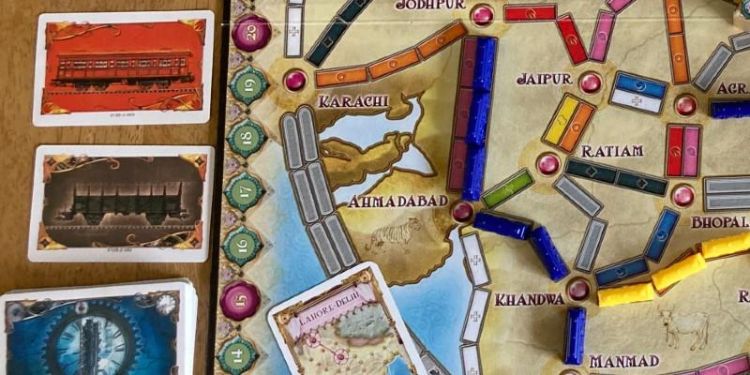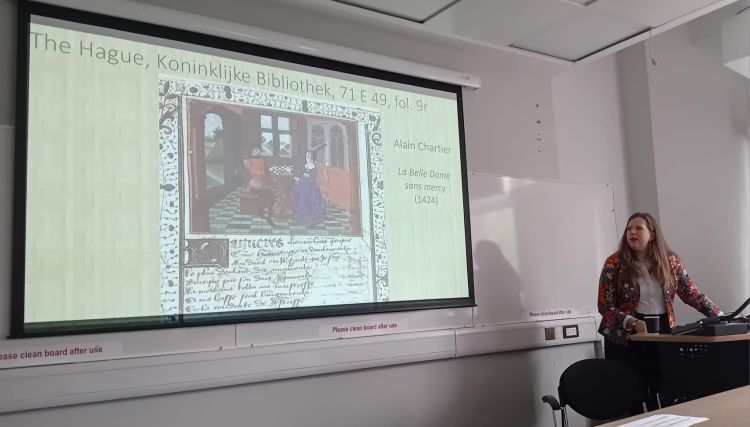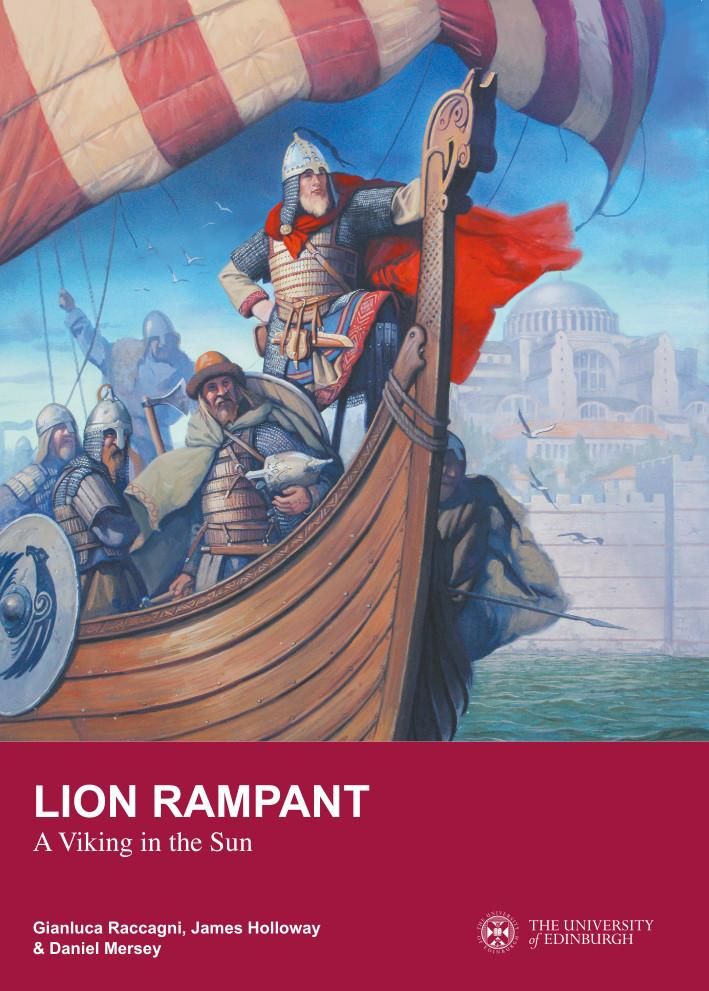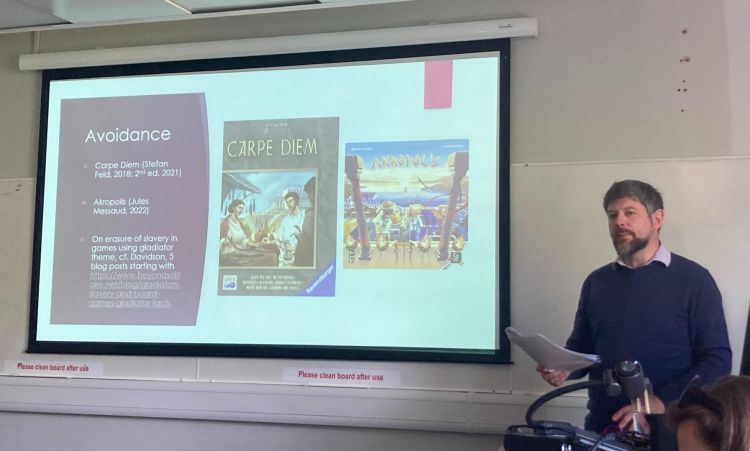Looking at history through games and games through history

Postgraduate Researcher Izzy Bartley discusses a recent colloquium at the University of Leeds which gave researchers a platform to showcase a wide range of intersections between history and games.
Although commonly overshadowed by their flashier videogame cousins, tabletop gaming – including board games, card games and role-playing games (RPGs) – is beginning to attract the academic attention it deserves.
Capitalising on a common research (and extracurricular!) interest in tabletop games, in May of this year I organised a colloquium with the theme ‘History Through Games and Games Through History’, alongside Associate Professor Owen Hodkinson from the School of Languages, Culture and Society.
A central aim of the colloquium was to invite researchers to share their ongoing projects that use tabletop games in a variety of ways, including as teaching or facilitation tools, and as a focus of study.
The conference began with Professor Emma Cayley (Head of School for the School of Languages, Culture and Society) who gave a fascinating insight into the myriad ways playing cards have been used through history, both in a social context and a practical one.
From the brief disappearance of the noble (face) cards during the French Revolution (off with their heads!) to finding individual cards secreted in the bindings of old books, we learned that playing cards have a long and storied history.

Emma Cayley presents an insight into the use of playing cards throughout history, 21 May 2025. Photo by Owen Hodkinson.
Jennifer Cromwell (Manchester Metropolitan University) then took us on a journey back to ancient Egypt at the time of Qadesh, as she introduced a tabletop role-playing game she is developing where players are soldiers preparing for this epic historical battle.
We discussed the ethical considerations and complexities of playing characters from a different time period, culture and ethnic background and the tensions between historical accuracy and gameplay considerations.
This thread was later picked up by Gianluca Raccagni from the University of Edinburgh who has also been working on a role-playing game project, this time with a Viking theme.
In Viking in the Sun, players follow the footsteps of Harald Hardrada on his Mediterranean adventures before the time of the crusades. The role-playing game has been commercially successful, proving that there’s a market for games based on solid historical research.

Lion Rampant: A Viking in the Sun by Daniel Mersey, Gianluca Raccagni and James Holloway. University of Edinburgh, 2021. Cover art by Mark Stacey. Image used with permission.
From historical based role-playing games we then turned our attention to board games with two contributions that focused on the use of colonial theming in games.
I presented my own research which brings museum professionals and members of the public together to play selected games. The play experience is then used to springboard discussions around colonial histories and legacies, including museum practices. This research project represents a novel approach to bring interested parties together and kick-start what are often difficult conversations around the role of museums in perpetuating colonial mindsets.

The board game Ticket to Ride: India was played as part of Izzy Bartley’s research project. Photo by Izzy Bartley.
Owen Hodkinson (University of Leeds) presented a survey of board games set in ancient Greece or Rome, showing a trend in recent decades for games which emphasise competition within those civilisations. Such games employ a variety of strategies for dealing with the colonialism, genocide and a slavery-based economy that were the reality in these historical settings.
These include downplaying them by using euphemisms in the game text (e.g. “prisoners” or “workers" instead of "enslaved people"), or avoiding reference to them altogether, facilitated by the competition being internal to these empires instead of having conquest of others as a goal.
The presentation grouped these strategies into four categories (avoidance, silence, euphemism, and destiny—the idea that Greeks or Romans were always destined to rule the lands they ended up ruling). Examples of each were discussed using the games’ rule books, in-game text and how the game encourages players to take particular actions.

Owen Hodkinson reveals ways in which colonial violence is hidden in games set in ancient Rome or Greece, 21 May 2025. Photo by Izzy Bartley.
We then got hands on with a game hack workshop which I co-ran with Matt Coward-Gibbs (York St. John University). Split into small groups, participants were tasked with challenging the normalisation of colonial mindsets and actions in the popular card game Archaeology: The New Expedition.
This game situates players as White, male archaeologists, digging in the Egyptian desert for ‘treasure’. The player who sells the most valuable collection of treasures to the museum wins. Each of the three groups came up with very different approaches to hacking this theme, including reversing the negative representation of local Egyptian people in the game, and introducing a ‘corruption’ mechanism for museums acquiring objects unethically.

Participants hacking the game Archaeology: The New Expedition as a method of challenging the colonial theming of the game, 1 May 2025. Photo by Izzy Bartley.
Overall, it was a fantastic day of learning and exchanging research that showcased a wide range of different intersections between history and games, and an invaluable opportunity for researchers at a range of institutions to connect with each other in what is a small but fast-growing research field.
There are now plans afoot to create a more formal network to help promote further connections between researchers working in this field, creating a long-tail legacy from the colloquium.
About Izzy Bartley
Izzy Bartley is a Postgraduate Researcher based in the School of Fine Art, History of Art and Cultural Studies.
Izzy’s doctoral research focuses on the representation of colonialism in board games and how we can use these games as learning tools within museums and the board game industry itself. Izzy is interested in how these objects of material culture are both products of, and influencers in, our view of the world and shared histories.
Find out more about Izzy Bartley’s research.
Read Izzy’s recent article on Re-thinking the Role of Play in Museums (Social History Curators Journal via White Rose Open Access Depository).
Feature image
Detail from the board game Ticket to Ride: India, played as part of Izzy Bartley’s research project. Photo by Izzy Bartley.




